- Two Sudanese Army leaders, Mohamed Hamdan Dagalo, Abdel Fattah al-Burhan in conflict of supremacy in Sudan
- Rapid Support Force, RSF gains upper hand against the country’s Army, SAF, as thousands of Sudanese are killed, millions displaced
- UN, AU appeal for immediate peace resolution in the Sub-region
For over eight months now, Sudan has been locked in all time war in a renewed conflict in the country. The war has been between the Sudanese Armed Forces (SAF) under General Abdel Fattah al-Burhan and the paramilitary group known as Rapid Support Forces (RSF) under Hemedti.
WITHIN NIGERIA gathered that the RSF which is made up of the rival factions of the military government of Sudan began its military campaign on April 15, 2023, on a Ramadan day.
Though fighting was initially concentrated around the capital city of Khartoum and the Darfur region, it later spread to other cities after some weeks of intense fighting.
It was reported that as of October, between 9,000 to 10,000 people have been killed at least 6,000 to 12,000 others injured in the conflict.

According to United Nations reports, as of December 23, 2023, over five million have been internally displaced and more than 1.5m others had fled the country as refugees even as tens of thousands of people have also lost their lives in the 2023 Masalit Massacres.
Formation of RSF
The Raid Support Forces, RSF, are paramilitary forces formerly operated by the Government of Sudan. Composed mainly of Janjaweed militias which fought on behalf of the Sudanese Government during the war in Darfur and was accused of committing atrocities against civilians.
RSF is administered by the National Intelligence and Security Service while during military operations is commanded by the Sudanese Armed Forces (SAF).As of June 2019, the commander is General Hemedti (“Mohamed Hamdan Dagalo”).
However, during the Sudanese political crisis in 2019, the militia junta that took control of the country employed RSF to violently crack down on pro-democracy demonstrators. Along with other security forces, RSF carried out the Khartoum Massacre on June 3, 2019.
On 15 April 2023,fighting broke out between RSF and the SAF after RSF mobilized its forces in cities across Sudan including Darfur. The stalemate continued and the SAF designated RSF a rebel group. RSF forces claim to have occupied Khartoum International Airport and other areas in Khartoum.
RSF was officially formed in 2013, following a restructuring and reactivation of Janjaweed militias in order to combat rebel groups in Darfur region, South Kordofan and the Blue Nile states.
So, headed by Mohamed Hamdan Dagalo (“Hemetti”), who has been its leader since it was created in 2013 RSF as of September 2019, Hemetti’s brother Abdul Rahim Hamdan Dagalo is deputy head of RSF.

RSF was estimated by the Human Rights Watch as having about 5,000–6,000 soldiers in February 2014 in Darfur. In 2016–2017, RSF had 40,000 members participating in the Yemeni Civil War. In late October 2019, 10,000 had returned to Sudan. In July 2019, about 1,000 RSF soldiers were present in Libya, supporting the Libyan National Army commanded by Khalifa Haftar.
According to Reuters as of 2023, the force numbers 100,000 people.
Origins of the SPLM-N and the SLM
The Sudan People’s Liberation Movement, SPLM, was formed as a political party in South Sudan as a political party. It was initially founded as the political wing of the Sudan People’s Liberation Army, SPLA, a key belligerent of the Second Sudanese Civil War in 1983.
On January 9, 2005 the SPLA, the SPLM and the Government of Sudan signed the Comprehensive Peace Agreement, ending the civil war. SPLM then obtained representation in the government of the then semi-autonomous Southern Sudan.
In any case, when Sudan became a sovereign state on July 9, 2011, SPLM became the ruling party of the new republic. SPLM branches in Sudan separated themselves from SPLM, forming the Sudan People’s Liberation Movement-North.

By and large, further factionalism appeared as a result of the 2013-2014 South Sudanese Civil War, with President Salvar Kir leading the SPLM-Juba and former Vice President Riek Machar leading the SPLM-in-Opposition.
Background of the latest war in Sudan
Since the 2021 coup which saw the ouster of the long-ruling President, Omar Hassan Ahmad al-Bashir , Sudan has been run by a council of generals, led by the two military men at the centre of this dispute:
General Abdel Fattah al-Burhan,the head of the armed forces and in effect the country’s president and his deputy and leader of the RSF, General Mohammed Hamdan Dagalo, better known as Hemedti.
They have continued to disagree on the direction the country is going in and the proposed move towards civilian rule.
The main sticking points are plans to include the 100,000-strong RSF into the army, and who would then lead the new force.
The shooting which led to the present war began on 15 April following days of tension as members of the RSF were redeployed around the country in a move that the army saw as a threat.
There had been some hope that talks could resolve the situation but these never happened.
It is disputed who fired the first shot but the fighting swiftly escalated in different parts of the country with more than 400 civilians dying, according to the World Health Organization.
Findings revealed that the latest war in Sudan began with the attacks by the RSF on government establishments as airstrikes, artillery and gunfire were said to have been reported across the country.
Few days later, the cities of Khartoum and Omdurman which were divided between the two warring factions with al-Burhan relocating his government to Port Sudan as RSF forces captured most of Sudan’s government buildings were also targeted.
The Treaty of Jeddah, an attempt to negotiate ceasefire which did not stop the fighting was abandoned and the treaty collapsed; resulting in the escalation of the war.
However, with the collapse of the Treaty of Jeddah, the next few months became horrible and unbearable for the Central African Republic country as Sudan literally slide into full scale war.
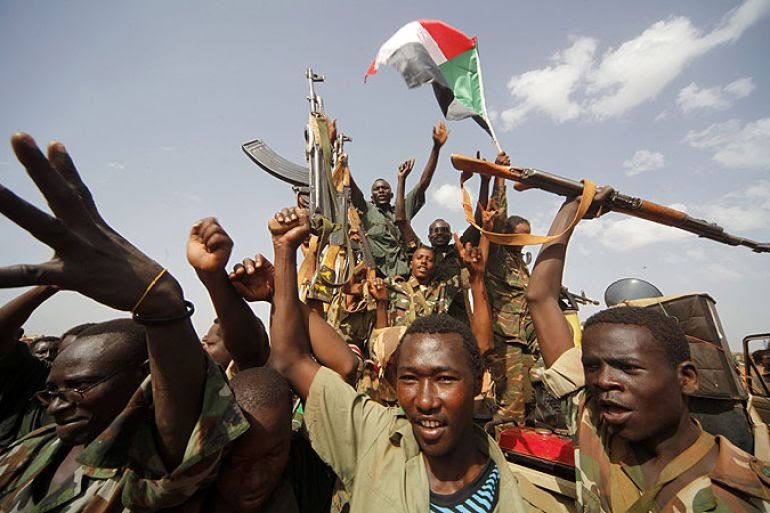
The stalemate that ensued led to many people, groups joining the two warring groups, leading to the worsening situation in Sudan.
As the situation continues, the two sides were then joined by rebel groups who had previously fought against Sudan’s government. By mid-November the Minni Minnawi and Mustafa Tambour factions of Minni Minnawi and Mustafa Tambour factions of the Sudan Liberation Movement (SLM) had officially joined the war in support of the SAF, alongside the Justice and Equality Movement, (JEM).
In any case, in what looked like the balance of power strategy, the Tamazuj movement also joined forces with the RSF, while the Abdelaziz al-Hilu faction of the Sudan People Liberation Movement –North (SPLM) attacked SAF positions in the South of the country.
From October, 2023, momentum began to swing towards the RSF once more as the paramilitary groups defeated army forces in Darfur and made gains in Khartoum state, Kodofan and Gezira state.
Further negotiations between the warring sides have so far produced no significant results, while many countries have provided military or political support for either al-Burhan or Hemedti.
As the Sudan Army continue to record losses, with less options available to defeat the enemy, there have been reports of conscription of Sudanese, most of whom under the age of 18 to help fight the RSF, an allegation denied by the Sudanese Army Chief, General Abdel Fattah al-Burhan.
How the latest conflict can jeopardize stability in the sub-region
Sudan, officially known as the Republic of the Sudan is located in Northeast Africa. It borders the Central Africa Republic to the Southwest, Chad to the West, Egypt to the North, Eritrea to the northeast, Ethiopia to the Southeast, Libya to the northwest, South Sudan to the South, and the Red sea.
It has a population of 45.7 million people as of 2022 and occupies 1,886,068 square kilometers(728,215 square miles), making it Africa’s third largest country by area.
In any case, with the escalation of war in Sudan and continuous gain on the RSF, there is great danger of other neighbouring sliding into similar crisis if the situation is not ameliorated.
Since violent conflict started in Sudan in April, more than a million persons have fled to these neighbouring countries, thereby exacerbating the already constrained resources available to take care these neighbouring that are already in crisis.
Mores so, with the history of the RSF which has its roots from Janjaweed militia group, there is also fear of another deadly armed group emerging from RSF, which will continue to pose security threat, not only to Sudan but equally to other neighbouring countries.
Reactions of the UN on Sudan war
“There needs to be a negotiated solution to end this war as soon as possible. There is no other alternative, said Martha Pobee, the UN Assistant Secretary-General for Africa, whose portfolio covers both political and peacebuilding affairs.

“The longer this war continues, the greater the risk of fragmentation, and foreign interference and erosion of sovereignty, and the loss of Sudan’s future, particularly its youth,” she warned.
Clashes continue there and in other parts of the country, including Bahri, Omdurman and Darfur, “with neither side achieving victory nor making any significant gains,” she said.
“The parties have exacted tremendous suffering on the people of the Darfur region. The fighting in Darfur continues to reopen the old wounds of ethnic tension of past conflicts in the region,” she added.
“This is deeply worrying and could quickly engulf the country in a prolonged ethnic conflict with regional spill overs.”
Ms. Pobee said sexual violence continues to be perpetrated on a large scale, and children have been killed or victimized, or are at risk of being recruited into the hostilities.
“The systematic abductions and killings of human rights defenders in Darfur and Khartoum are on the rise,” she noted.
“The parties to the conflict must take concrete actions to end and investigate these violations, and support must be provided to strengthen human rights defenders’ networks and better protect human rights defenders.”
UN supports mediation efforts
The United Nations through its mission in Sudan, UNITAMS, remains committed to supporting efforts by the African Union and the regional bloc IGAD to end the war.
She also welcomed efforts by the United States and Saudi Arabia, which have been facilitating talks between the sides, and also by Sudan’s neighbours.
“The common thread among these initiatives is the call for a permanent cessation of hostilities, facilitation of humanitarian access, and engagement with civilian stakeholders in an inclusive political process,” she said.
Edem Wosornu, a Director in the UN humanitarian affairs office, known as OCHA also briefed the Council on her visit to Sudan two weeks ago.
“Everyone had a story of parents, children, colleagues and friends who had perished in this devastating conflict, with fears of many more to come as the conflicting parties push on regardless of the consequences,” she said.
More than 20 million people, over 40 per cent of the population, are facing high levels of acute food insecurity. The banking system and public services have been disrupted, and 80 percent of hospitals nationwide are not functioning.
Negotiating humanitarian access
Ms. Wosornu said although the intense fighting and dangerous conditions are hampering aid delivery, the UN and partners have restored the flow of humanitarian supplies, particularly in the Darfur states where access was most limited.
Humanitarians have so far reached nearly three million people nationwide; however, this is but a fraction of the 18 million people they are trying to assist, including nearly 14 million children.
“It is urgent that we re-establish a forum for direct and regular contact on humanitarian issues with the parties at a senior level, to negotiate access and protect the space for humanitarian operations in Sudan,” she said. “We need the strong support of Member States to facilitate this.”
Ms. Wosornu highlighted another obstacle as a $2.6 billion humanitarian appeal for Sudan is just 24 per cent funded. She urged the international community to step up support.
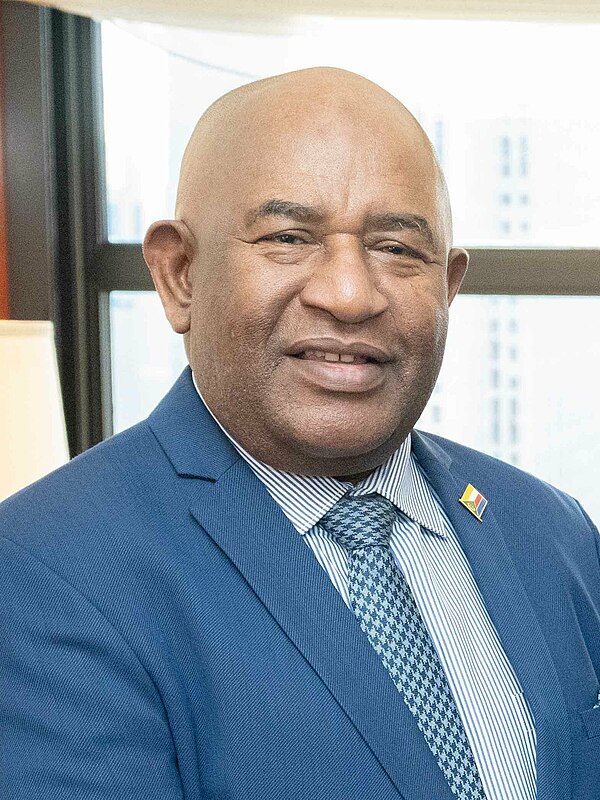
The African Union (AU) has appealed to the Sudanese Armed Forces (SAF) and the Rapid Support Forces (RSF), engaged in armed confrontations since the 15th of April 2023, to implement an immediate ceasefire, in order to ensure the protection of civilians, health, sanitary, transport and other critical infrastructure, particularly water and electricity services, humanitarian access and assistance, as well as political dialogue.
AU reactions to the war in Sudan
Sudan was suspended by African Union following the conflict in the country. The AU Commission Chairperson convened a high-level global meeting on 20th April 2023, in which the United Nations (UN) Secretary General, the Executive Secretary of the Intergovernmental Authority on Development (IGAD), the League of Arab States (LAS), the High Representative of the European Union for Foreign Affairs and Security Policy, the permanent members (P5) of the UN Security Council (UNSC).
Also included are the African members of the UNSC (A3), Sudan’s neighbouring countries, Comoros as Chair of the African Union, Saudi Arabia, the United Arab Emirates and Qatar, agreed to exert pressure on the belligerent SAF and RSF to silence the guns, and support Sudanese stakeholders through a jointly led AU-UN mechanism aimed at coordinating international action to end the violence and the destabilisation of Sudan, the region and continent.
H.E. Amb. Bankole Adeoye, AU Commissioner for Political Affairs, Peace and Security, briefed the press on Tuesday, 26th April 2023, via the Zoom online platform, on the AU’s contributions to the Sudan peace process, detailing the AU’s support to the Sudanese stakeholders after the 2019 peaceful revolution that led to the August 2019 transitional agreement, the 2020 Juba Agreement with Sudanese armed groups, and the AU Peace and Security Council’s (PSC) suspension of Sudan in October 2021 following a coup that ousted Prime Minister Abdalla Hamdok.

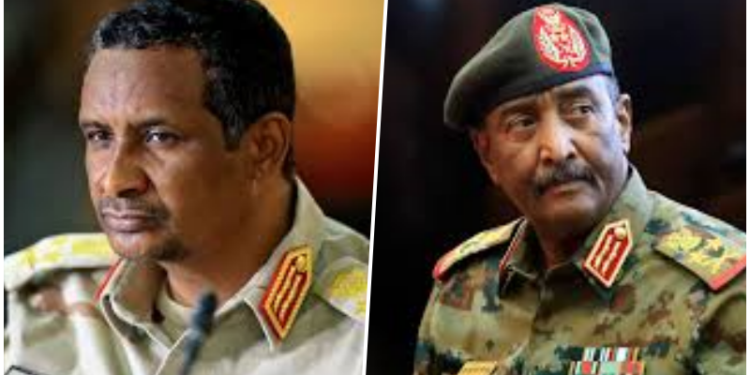
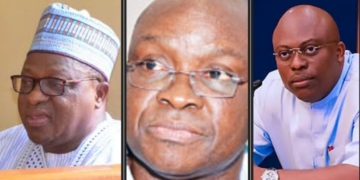
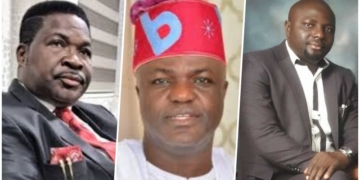
Discussion about this post